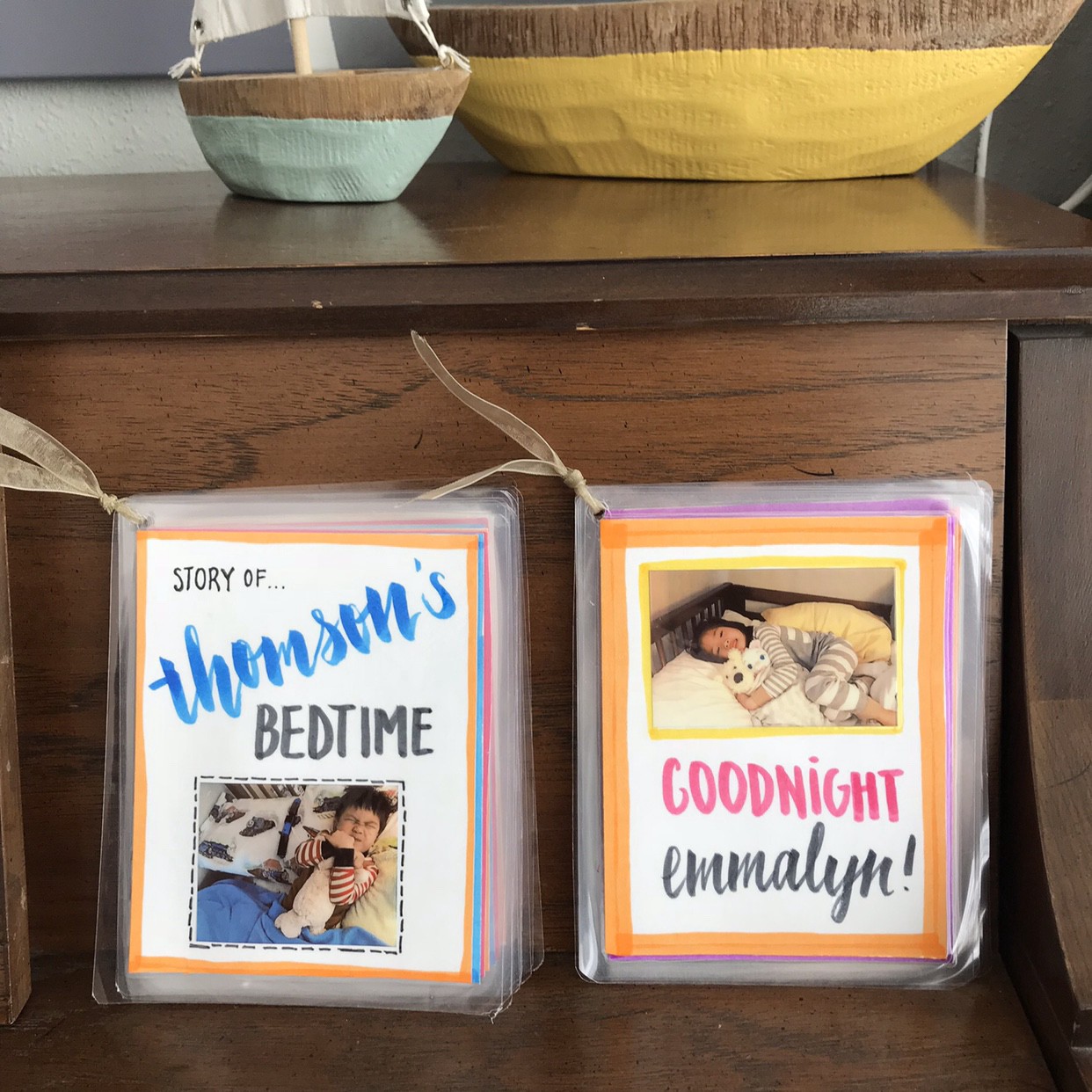Getting out of the funk of accidental co-sleeping
You know the drill. Your child was sleeping fine in their bed, on their own. A trigger event happens which leads to a “temporary” cosleeping decision to help everyone get some rest. Except you never actually stop. That’s accidental cosleeping. Common trigger events include sickness, nightmares, teething, development milestones or big family changes like a new sibling. For us, it was getting over 14h jetlag travel and weaning off the pacifier. A super active two year old boy just could not understand why he should sleep when he just wasn’t tired. When we dropped the paci, he would wake up mid-sleep screaming. These disruptions greatly affected the quality of his older sister’s sleep, since they shared a room. This made our tolerance for sleep training methods we have successfully tried in the past, much lower. We ended up cosleeping thinking that that one day we will stop. For a whole year now, every time I tried to leave him he would scream and cry. If we did successfully sneak out, he would get these crazy night wakings “zombie” episodes whenever he awoke.
While weaning him off his pacifier, I became his pacifier. He couldn’t sleep unless he was rubbing my fingers to sleep (cute, I know!).
Cosleeping would have been a viable option, if it meant we actually slept. I didn’t.
Consistency is at odds with exhaustion.
If you went on any parents group now to ask for help, you’ll get a ton of ideas around reversing this. The underlying theme is usually “be consistent” or “just stick it out”. My husband and I tried everything from CIO, to tuck and retuck, leave door open, wake clock etc. But often disagreed on how long to let him cry. Your resolve is only as strong as the weakest link — both grandma and I. This led us to fight often. My compounded exhaustion inevitably led me to wave the white flag and backslide into the familiar — cosleeping.
We are more important than their sleep.
Over time, I noticed that my husband and I started to build up resentment towards each other. We both desired to exercise, get some down time at night, or sneak out for a movie but one of us had to be on cosleeping duty. We took turns but our sleep quality was actually dramatically different. I couldn’t sleep while DH slept anywhere, anytime. We resorted to crazy things like working out at 11pm or 4am, which made us even more sleep deprived and grouchy. We were often short with each other. We needed help and the first step was recognizing that our son’s sleep should not be the center of our universe.
Getting professional help is not a sign of weakness.
Not everyone needs professional help. But I knew that in our situation, we did. And if we could, we should.
The traditional sleep training approaches have not worked with #2. Especially with #1 in the picture.
We’re not on the same page and we need help to get on the same page. i.e. Therapy
I am not sleeping. Without good sleep, I am barely surviving.
I believe he can sleep on his own. He can.
DH was on board. The good news is — There are professionals out there for anything. I found many sleep specialists for babies (yes, an emerging but strong market!) but none for toddlers. After emailing a few of them, I got a referral for a sleep specialist, Dr. Angelique Millette, who works with kids of all ages. She developed the “Millette Method” through years of working with families all over the world. A quick yelp sanity check was enough for me to schedule a free consult. The three of us jumped on a conference call to discuss what was going on.
“For our family,…”
You hear this a lot : “This worked for our family”. That is because we know that what 100% worked for someone may 0% work for someone else. I could speak to a hundred families and try to triangualte a plan of attack but the reality is that going to an expert that works with hundreds of families just seems a lot more efficient. Dr. Millette suggested that we would put together a unique three-week tailored program for our entire family (including grandma!) with unlimited email/text support during this period. Turns out we didn’t have to meet in person even though she offers in-home visits.
Teach them to sleep. Not force them to sleep.
One of my biggest reservations about any method is my reluctance to let him go through extended periods of extreme intense crying. He’s head banged on the wall before and cried so bad he threw up. It’s emotionally traumatizing for me and his older sister who’s in the room with him. This was Dr. Millette’s response:
Kids don’t learn anything if you just shut the door and leave. I promise this will be a gradual learning experience for him. — Dr. Angelique Millette
We got behind that philosophy 100% and signed up immediately. The kick-off was scheduled for two weeks out (her schedule is packed). We were sent a very detailed intake form about our families health history a week in advance. During the kick-off call, Dr. Millette asked a ton more questions about our context, environment, goals and most importantly really tried to get to know the kids. Following that, she laid out a three week plan for us to follow. She walked us through each phase and the activities we would be doing (even including for the older sister) down to the exact phrases to say. All the notes were typed up and sent to us. I was floored at how much of the plan was actually focused on teaching new skills and preparing them for what was to come. The activities or “therapies” she crafted were also fun and engaging. My favorite one was a sleep time book that we made together with both kids.
Coaching is an iterative process.
We see now why she offers a three week support plan and why that’s critical to the process. There are just so many variables — kids response, parents response, environment, unexpected curveballs. Every morning we would send her a quick note about how his sleep went and she would respond with her recommendations for that night, and most importantly, the plan of action for all the possible “what if” scenarios!
Failing to plan is planning to fail.
Sometimes the coaching was to stay the course, other times it would be to try something new or tweak something existing. I loved how we never had to second guess ourselves because we had an expert to turn to. Without giving too much away, we had a few bumps along the way but by week 2, we could leave the room while he was still awake and he would fall asleep on his own. Week 2–3 was actually more tiring because we were working on not being in his room. If we were on our own, we would have given up out of exhaustion. But having a “personal trainer” in Dr. Millette kept us motivated and accountable! His night wakings ceased by the time we hit week 4. All with minimal crying/whining. I’m oversimplifying what we actually did— but there was so much that went into our plan, including the iterations that were put into place. Overall, it worked. :)
Unexpected but quite possibly the best outcome: Big sister steps up
Because we had inadvertently taught our son that he could only sleep with us in his bed, his sister wasn’t plan B. I had secretly hoped that she would somehow comfort him just by being there when he was sad.
He just didn’t care.
That ended up annoying her because not only could she not step up, he also got all the attention. Once we stopped sleeping in his bed, we noticed a big change in both of them. She now takes ownership in helping him learn to sleep and continues to step up in big ways. He’s also much more receptive to her offering help and comfort. For example, he woke up a little too early one morning and she offered to come down and snuggle. She’s happier at bedtime because now they get the same attention. She’s giving him way more hugs than before and they’re playing together much more.
Thomson sleeps in his bed. Emmalyn sleeps in her bunk bed. Mommy and daddy sleep in their bed. The family sleeps. — Thomson’s favorite page from his sleep book.
His sleep might never be perfect. He still wakes up a little too early. I’m sure we’ll backslide again, perhaps on our next big trip. But we have confidence that we have been equipped with the right tools that work for our family. And if not, Dr. Millette is only an e-mail away. We’re all sleeping much better, although hilarious that I’m up at 4:45AM writing this 😂. Both our kids have learnt new and valuable skills. As parents, we learnt that the mindset of “what do they need to learn from this experience?” can also apply to sleep training. Most importantly, our marriage is in a much better place now. ❤️
Dr. Millette has gone on to help many of our friends and their families with sleep issues. She continues to help families thrive through her techniques. WLK does not receive any endorsement for this blog. We’re in this together, people.
Dr. Angelique Millette
Dr. Angelique Millette is a parent coach, pediatric sleep consultant, family sleep researcher with offices in Austin, TX and San Francisco, CA. Twenty years of working with families, Dr. Millette has developed The Millette Method™ a multi-disciplinary approach to family sleep. The Millette Method™ does not follow one specific sleep method, but rather uses a “tool-box” of different methods and takes into account family schedule, child development, temperament, and parenting philosophy, all while keeping an eye on sleep deprivation, parental overwhelm, and emotional health.To find out more, visit www.angeliquemillette.com





